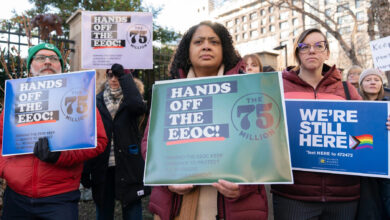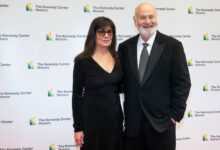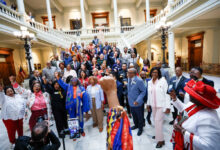Breaking: Supreme Court Sides With Parents in LGBTQ Curriculum Opt-Out Case
Ruling curtails inclusive teaching by allowing religious-based exemptions in schools.

The U.S. Supreme Court on Friday delivered a major setback to LGBTQ inclusion efforts in public education, ruling 6-3 in Mahmoud v. Taylor that a Maryland school district must allow parents to opt their elementary-aged children out of lessons featuring books that include LGBTQ themes.
The conservative majority found that the school board’s refusal to grant religiously based exemptions violated the constitutional rights of parents, burdening their free exercise of religion. Writing for the majority, Justice Samuel Alito said that the use of so-called “LGBTQ+-inclusive” storybooks without prior parental notice or the option to opt out “substantially interferes with the religious development of their children.”
The ruling requires the Montgomery County Board of Education to notify parents in advance when such materials will be used and to allow students to be excused from the instruction.
“We reject this chilling vision of the power of the state to strip away the critical right of parents to guide the religious development of their children,” Alito wrote.
The decision marks a significant turn in the ongoing national debate over how gender identity and sexual orientation are addressed in public schools—a debate that has intensified in recent years as LGBTQ rights have increasingly come under political and legal attack.
The court’s three liberal justices—Sonia Sotomayor, Elena Kagan, and Ketanji Brown Jackson—dissented. Their opinions had not been released as of press time.
The plaintiffs, a group of religious parents, argued that being forced to have their children exposed to storybooks with LGBTQ characters contradicted their religious beliefs. Lower courts had previously rejected their request for a preliminary injunction.
Friday’s decision reverses those lower court rulings, granting the parents immediate relief while their broader lawsuit proceeds.
LGBTQ advocacy groups expressed deep concern over the ruling, warning that it could embolden efforts to roll back inclusive curricula and stigmatize queer students and families.
Though the ruling does not outright ban LGBTQ content in classrooms, it opens the door to widespread opt-out policies that critics say threaten the visibility of queer lives in education.
With this decision, the court has significantly weakened the ability of public schools to implement inclusive teaching without navigating religious objections—a move seen by many as prioritizing exclusion over equity.










